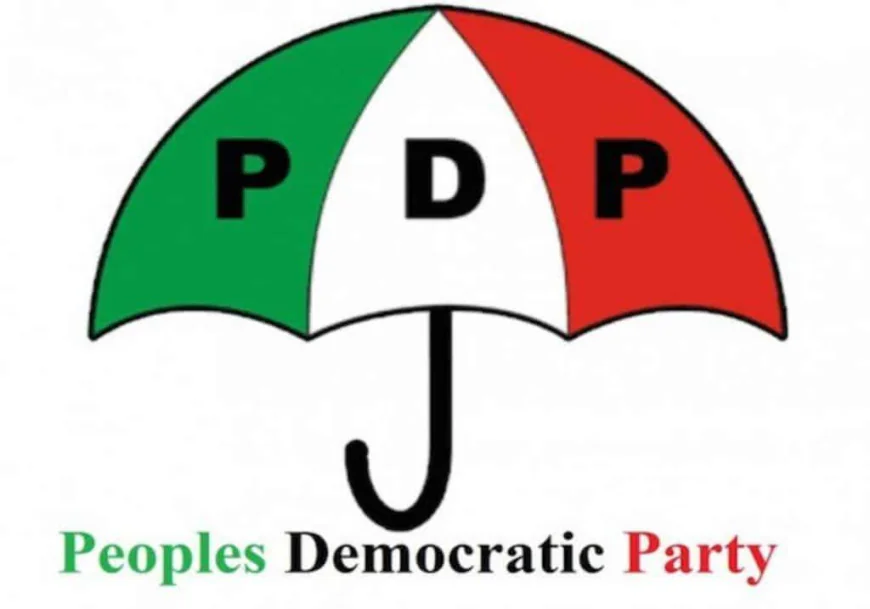Peter Obi’s Likely Return to PDP: Inside the Reconciliation Efforts and Zoning Deal Ahead of 2027

As the political landscape begins to shift ahead of the 2027 general elections, strong indications have emerged that former Labour Party (LP) presidential candidate, Peter Obi, may be considering a return to the Peoples Democratic Party (PDP). The development follows high-level reconciliation efforts led by former Senate President, Bukola Saraki, and the PDP’s recent move to zone its 2027 presidential ticket to the South.
Why Obi Left the PDP
Peter Obi was the running mate to PDP presidential candidate Atiku Abubakar in the 2019 general elections. However, he left the party in 2022 over internal conflicts, particularly the PDP’s failure to honor its zoning arrangement, which many believed should have favored a southern candidate after eight years of northern leadership under President Muhammadu Buhari.
Disillusioned by the PDP’s handling of the situation, Obi joined the Labour Party, where he contested the 2023 presidential election. Although he placed third, his campaign resonated widely, especially among the youth, giving birth to the influential “Obidient Movement.”
The Saraki-Led Reconciliation Committee
In an effort to rebuild the party’s fractured structure, the PDP appointed former Senate President Bukola Saraki to lead a reconciliation committee. The committee has been tasked with reaching out to aggrieved members, including prominent defectors like Peter Obi.
Insiders say the committee’s most significant achievement so far may be the potential return of Obi, which could energize the PDP base and rebuild support across key southern states.
Zoning Agreement: A Turning Point
A key condition for reconciliation, according to Obi’s camp, was the zoning of the PDP’s 2027 presidential ticket to the South. Dr. Katchy Ononuju, Obi’s former Special Adviser on Public Affairs, confirmed in an interview with DAILY POST that this condition has now been met.
“What caused the crisis in the first place was the refusal to zone,” Ononuju stated. “Now, the Saraki-led committee has made it clear that the party will zone the presidential ticket to the South. That’s the basis for the talks.”
He noted that the PDP’s announcement of this decision at a recent gathering at the NAF Conference Centre has already spurred dialogue with Obi and other stakeholders.
Ongoing Consultations
Ononuju disclosed that Obi recently held talks with prominent PDP leaders, including former Niger State Governor Babangida Aliyu, as part of ongoing consultations. He emphasized that the discussions are not about personal ambition but about securing commitments to equity and fairness in the political process.
“We want assurances,” he said. “If they have truly zoned the ticket to the South, then reconciliation is not just possible—it’s logical.”
Labour Party and ADC in Limbo
Despite recent associations with the African Democratic Congress (ADC) as part of an opposition coalition, Obi has not officially left the Labour Party. However, Ononuju dismissed ADC as an unstable platform lacking clear direction on zoning.
“I told Peter that if ADC doesn’t zone the presidency to the South, we cannot continue with them,” he explained. “That was the foundation of our departure from the PDP in the first place. We can’t repeat that mistake.”
He also clarified that figures like Labour Party spokesperson Kenneth Okonkwo were not foundational members of the movement. “We started this from within the PDP, and when they failed to zone, we moved. Those who joined us later may not understand the core of our position.”
APC’s Strategic Position and Atiku’s Role
Ononuju also alleged that former Vice President Atiku Abubakar may have tried to form or influence ADC to serve as a fallback option, knowing that the PDP was leaning toward zoning the presidency away from the North.
“If PDP fully commits to zoning to the South, the ADC becomes irrelevant,” he said. “Atiku’s influence won’t hold there. If we return to the PDP with zoning in place, it gives us a legitimate, structured platform to rebuild and contest.”
Rebuilding the PDP: Structure Is Human
Highlighting the human element of political organizations, Ononuju believes the PDP can be restored despite internal damage caused by past leadership crises.
“Parties are made of people. If we return, we can repair the system. We’ll put the right people in place and reclaim what was lost,” he said.
He emphasized that this is not just a political negotiation but a generational responsibility. “If we don’t fight for fairness now, our children will inherit this struggle. The presidency must rotate between the North and the South.”
What Comes Next?
Although Peter Obi has not made a public declaration about rejoining the PDP, the conversations and strategic realignments taking place behind the scenes suggest that a return is increasingly likely—especially if zoning remains intact.
As Ononuju put it: “A week or a month is a long time in politics. Anything can happen. But one thing is clear—if the PDP
gets it right on zoning, the road to 2027 might just lead Peter Obi back home.”


